
YANGON, Myanmar, Feb 12 (IPS) – Landing in Rangoon nearly 100 years ago, a young Chilean poet described “a city of blood, dreams, and gold” with “leprous streets”. The flourishing capital of then British-ruled Burma and its major port were a must-see staging post on an Asian tour.
Pablo Neruda’s poem from 1927 rings true today. The city, now called Yangon, with well over five million inhabitants, is bursting with life—part hedonistic and part dystopian—and both fuelled and choked by the grip of the junta that seized power three years ago.
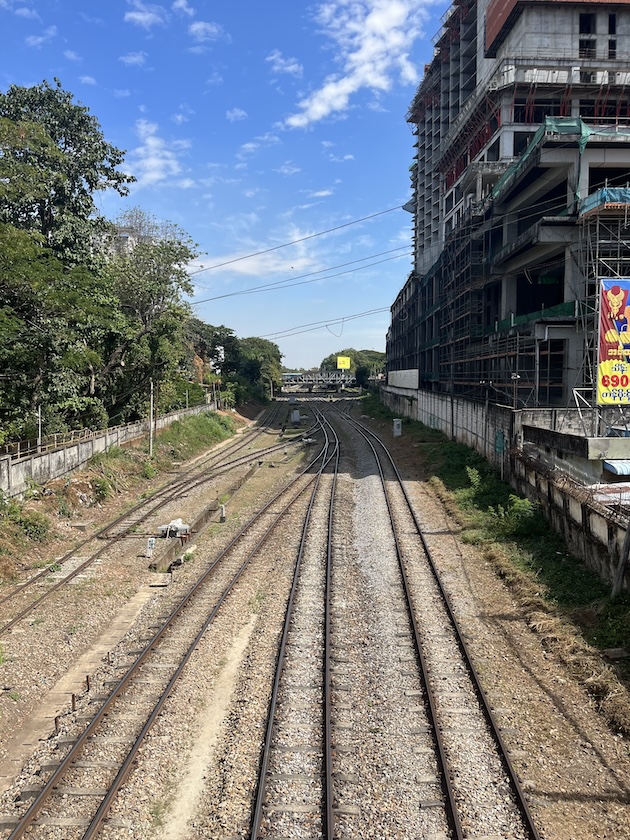
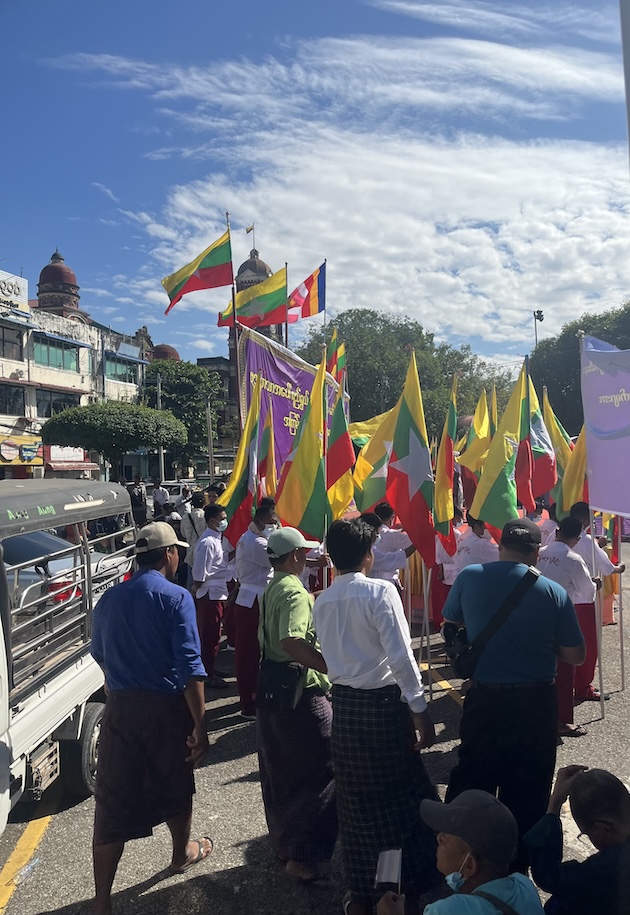
The reality is that Myanmar no longer exists as a coherent country, except on maps. Three years of extremely brutal conflict between a complex patchwork of pro- and anti-military forces has left Yangon—still a vital commercial hub—a relatively calm yet deeply troubled bubble amidst a stop-start process of nationwide fragmentation.
The military that overthrew Aung San Suu Kyi’s twice-elected government in February 2021 is losing control over large chunks of Myanmar. Armed mainly by China and Russia, the junta uses aerial supremacy and artillery to terrorise a population that, for the first time in modern history, has seen the Bamar majority turn overwhelmingly against the generals in Myanmar’s heartland.
But the war is not quite knocking at Yangon’s door yet, and the military has been emboldened to issue tourist and business visas to foreigners, no doubt welcoming their US dollars.
Yangon’s other “reality” is that despite being ranked as one of the world’s poorest countries, it is actually awash in money—the blood and gold described by Neruda. Billions of dollars flow from the expanding production and trade of narcotics, particularly methamphetamines, ketamine, and opium/heroin, and from vast casinos, brothels, and scam centres along the border with China and Thailand, populated by victims of trafficking.
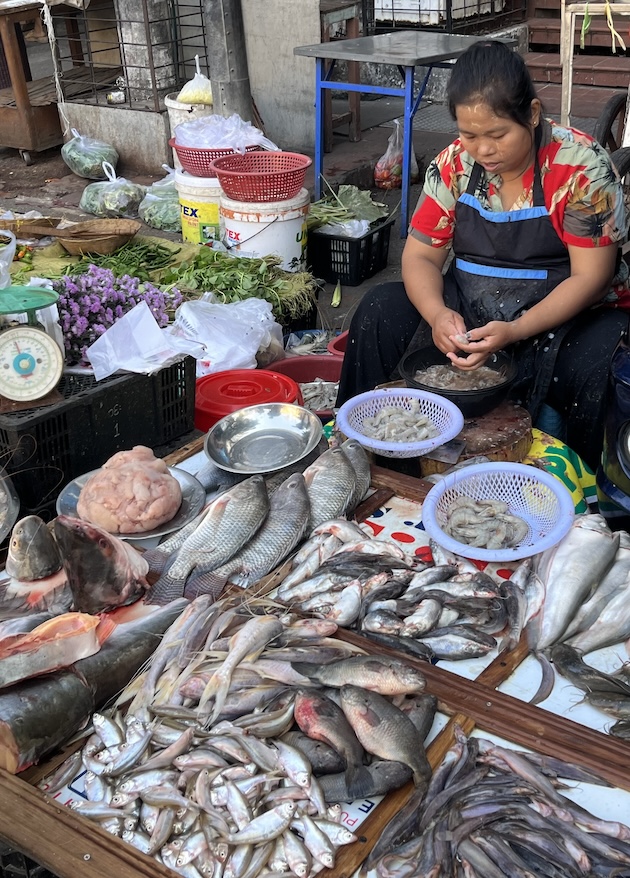
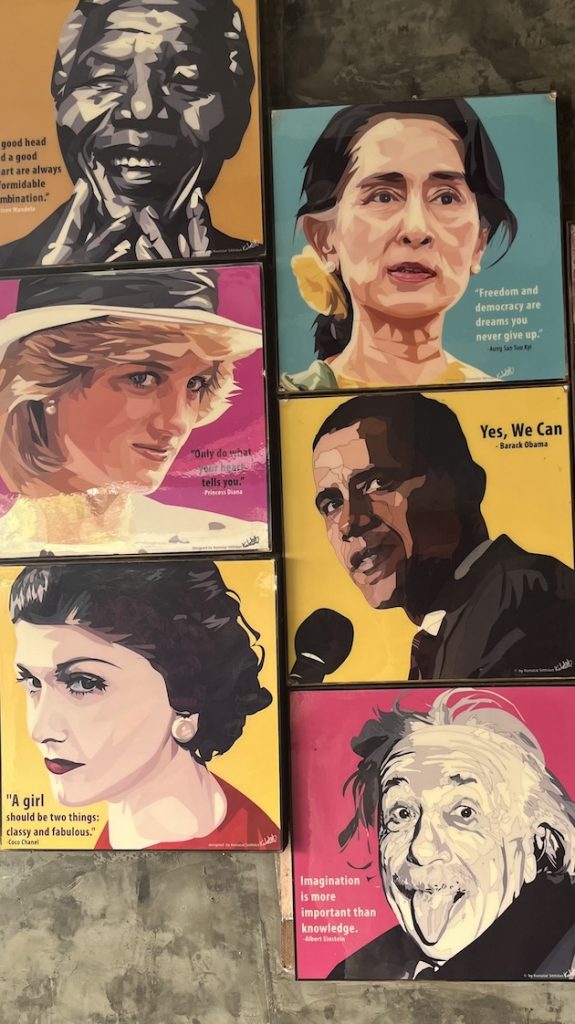
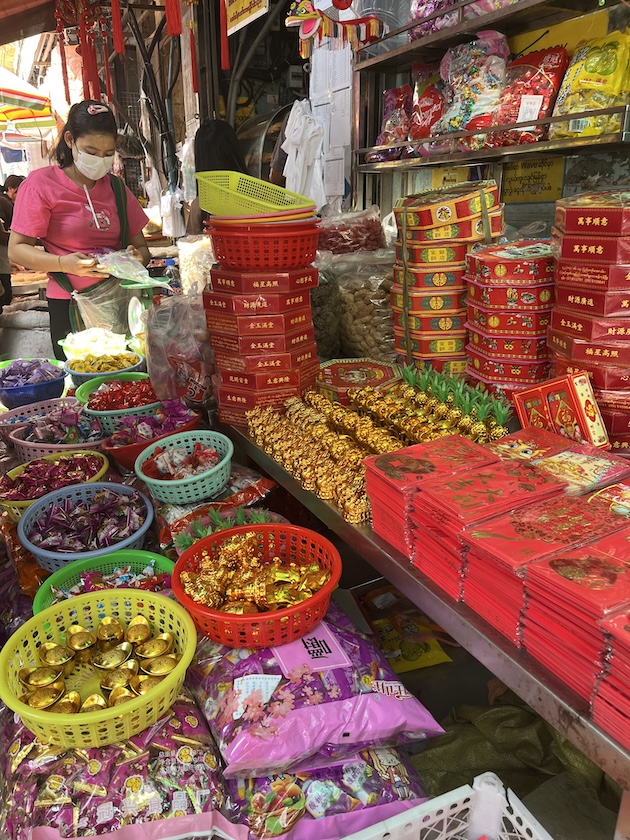
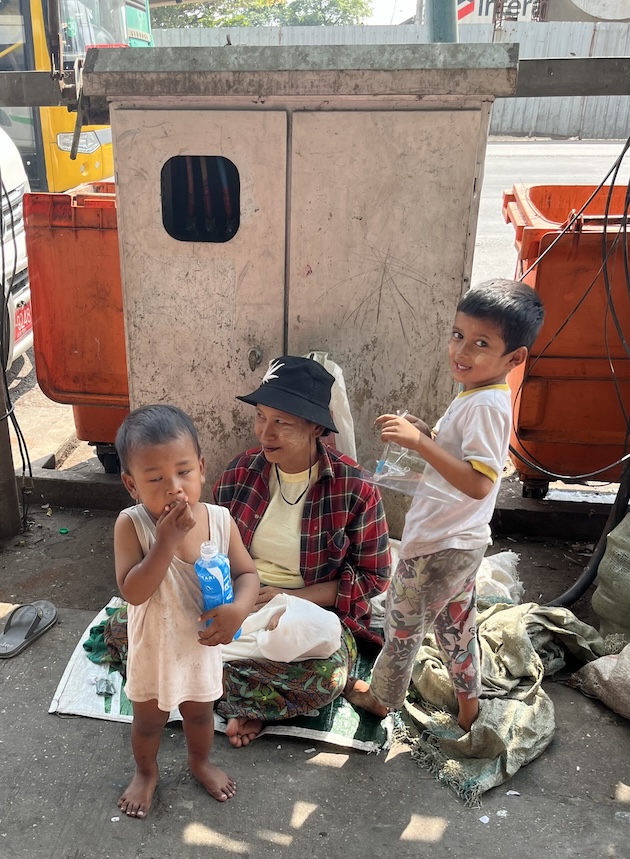
The junta does not directly control all these operations, but it takes a large slice, as do allied militias, criminal gangs, and some ethnic armed groups.
A gleaming white Bentley is parked outside one newly opened nightspot frequented by the offspring of the Yangon elite—the “cronies” whose businesses prosper in spite of, or often because of, sanctions imposed by the West. Inside the plush bar, youngsters in smart and sometimes scanty attire order expensive western drinks and truffle-flavoured fries.
“Madness prevails,” says a charity worker who describes walking through a compound and seeing a Rolls Royce, a Ferrari, and “even a Bugatti” parked there. Such ostentatious wealth abounds, but he cannot find a nurse to employ.
Elsewhere, the boom-boom of Burmese techno-rock and the strobe lights of the Levitate nightclub exclude conversation among the heaving dancing mass. There is “the choice of ecstasy, ketamine, or cocaine” instead, as one regular put it.
“FUCK THEM WE SLAY,” a neon sign proclaims ambiguously.
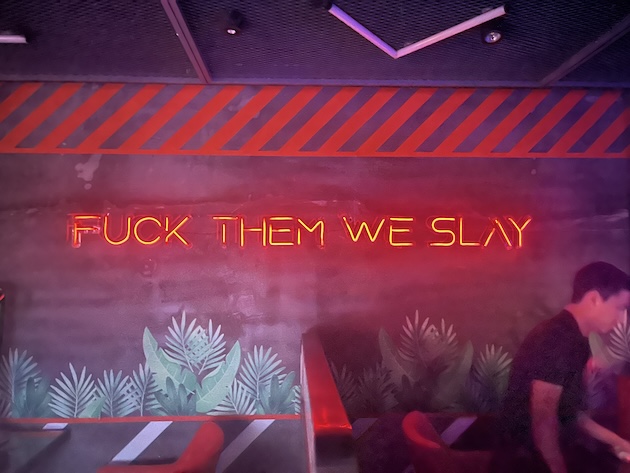
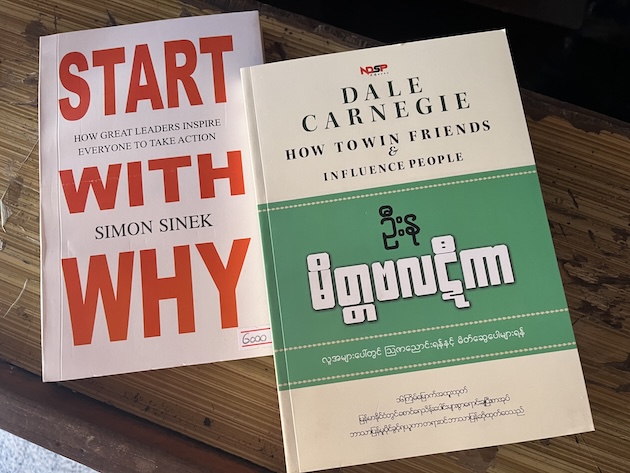
Further down the social scale, Yangon’s familiar open-air “beer stations” are thriving too. Supporters of the resistance take a stand by boycotting the once popular Myanmar Beer brand owned by a military conglomerate, but more expensive alternatives exist.
And then there are the growing numbers of beggars, especially children who dodge traffic to thrust their hands through open car windows or huddle with their mothers in the shade of overpasses.
Rush hour traffic is still chokingly intense and was even quite busy on February 1, the third anniversary of the coup, when the resistance called a ‘silent strike’, urging people to stay off the streets in peaceful protest. Adherence in Yangon was patchy and less than last year.
“People are tired and want to get on with their lives,” comments one long-time observer.
And this is the nub of it. Life goes on, but it does not mean the Burmese are less opposed to the junta, as before when troops crushed street protests in 2021 with mass arrests and live bullets. Aung San Suu Kyi, stuck in prison and turning 80 next year, remains popular.
However, people do seem to be losing faith in the opposition’s declarations of the military’s imminent collapse, even if, as one businessman opined, “There’s a strong sense that things are falling apart now, that the military is overstretched.”
Some Yangon residents are also tired of feeling guilty that they are living relatively well while young resistance fighters in far-flung rural parts are dying in combat and conflict-zone civilians are being bombed in villages, schools, and temples.
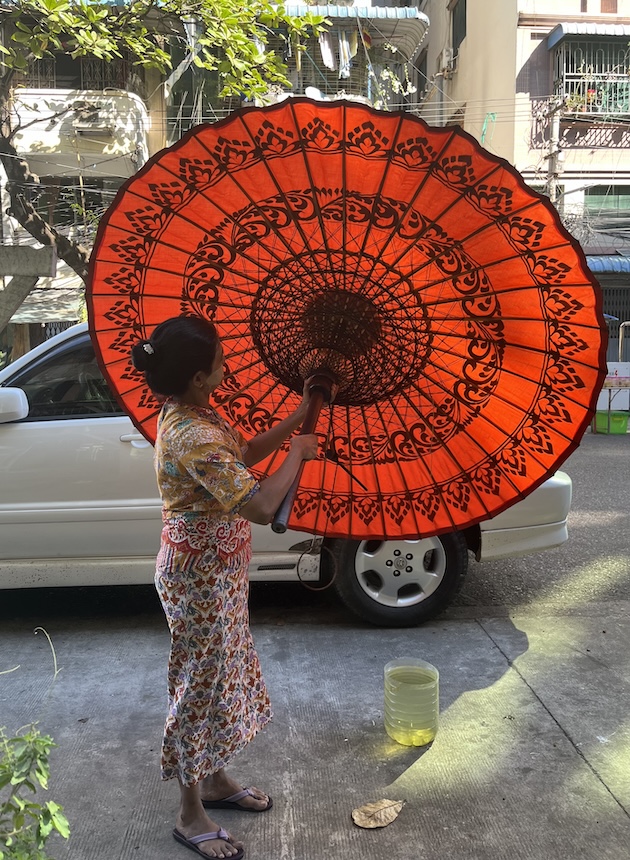
Many are leaving the country—legally with passports, risking dangerous routes through the jungle to Thailand, or clandestinely by sea for the persecuted Muslim Rohingya minority. Studying Japanese is suddenly popular in Yangon.
The city by day seems normal enough, with little visible military presence in most places, but by night it changes. Plainclothes police demand ID papers and go through mobile phones. Suspicious bank payments, perhaps to the opposition, mean arrest or demands for a bribe.
Ye, whose business collapsed in the post-coup pandemic lockdown, has sent his children back to a public school after taking them out of classes, as many did. They won’t see their mother for a long time. She has gone abroad to earn money as a care worker.
Like everyone you meet, the family frets about the soaring cost of living, especially food.
Daily power cuts, sometimes scheduled but often not, make life almost unbearable in the intense pre-monsoon heat. People are drawn to the air-conditioned cool of shopping malls, powered by giant diesel generators.
Still, Yangon’s vibrancy is irrepressible. Artists are again holding exhibitions (staying clear of controversial themes). Chinatown is a hive of shoppers ahead of the Lunar New Year, ushering in the Dragon, a symbol of good luck and prosperity, but also of power.
- William Webb is a travel writer whose love affair with Asia began 50 years ago
IPS UN Bureau Report
Follow @IPSNewsUNBureau
Follow IPS News UN Bureau on Instagram
© Inter Press Service (2024) — All Rights ReservedOriginal source: Inter Press Service